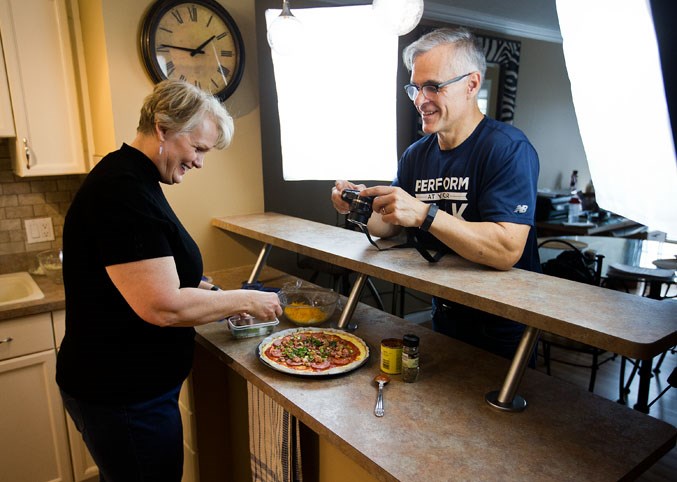While diets aren’t one-size-fits-all, one married couple has experienced positive health results for two completely different reasons since starting the ketogenic diet earlier this year. The keto diet is a high fat, low carbohydrate and moderate protein diet. The premise behind the diet is that by eating fat instead of carbohydrates, the body will break down the fat instead of storing it. Kim Berges, the local behind a Facebook page called Keto Edmonton Meetup, says since starting it in May she’s lost 14 pounds. “Before I started the diet I felt incredibly unhealthy. I hadn’t reserved the fact that I was going to be on this diet, I was just really in search of answers. And we were searching for answers for Doug for his various issues.” Her husband Doug Berges started the diet after suffering from chronic acid reflux, brain fog and depression for years. After starting it he noticed his energy begin to increase. “My acid reflux disappeared, my clarity was better,” he says. “I was totally amazed on how my symptoms went away.” He says prior to the ketogenic diet, he had been taking prescription pills for acid reflux for almost a decade. Emily Mardell, registered dietitian with the Primary Care Network in St. Albert, says she has some clients on the diet. “We do know that the ketogenic diet is efficient when followed well for weight loss,” she says. Mardell says the body has two ways of obtaining energy: either by glucose or by ketones. Glucose is produced when the body breaks down foods with carbohydrates, such as bread, fruit, some vegetables and sugar. Ketones are produced when the body breaks down fat in the liver. Glucose is the preferred way for the brain to get energy over fat, since it’s the easiest molecule for the body to break down. This means if carbs and fats are consumed the brain will send messages to the body to break down the carbs and store the fats. In order for the diet to work, the body needs to be in a constant state of ketosis, which occurs naturally when there’s a low food intake. To survive the body breaks down fats and produces ketones for energy. Mardell says it can be challenging to follow the diet, since the body needs to be in this constant state. “When you’re talking about reducing your carbohydrate intake to less than 30 to 50 grams a day, you’re calculating net carbs in basically everything,” she says. “If you are consuming anything over that threshold, for most people, you’re no longer in ketosis.” To maintain ketosis, people need to be good at calculating carbohydrates, reading food labels and preparing meals. For those who lack organizational skills, the diet could be challenging. She says it can also be difficult when there’s no support. Because the diet is so restrictive, it can get in the way of participating in social events that involve food. Berges is no stranger to the issue. As a solution she decided to create a local support group for people on the diet, where people connect and share their experiences. The last meetup brought around 14 people to Eat Clean Healthy Grill and Juice Bar, where the support group meets. The healthy restaurant closes at 6 p.m. Sundays, making it the perfect venue for the group. “We knew there were other people in the area who were following this, so we decided to meet up. The restaurant seemed like a perfect place, since they have keto options on their menu, and we got to support a local business." Berges is currently going through training to become a consultant for the keto diet. Partnering with her husband, the duo created a YouTube channel. The channel features recipes, information on the diet and the latest research. The next meetup will be Nov. 28 at 6 p.m. For more information visit their Facebook page https://www.facebook.com/KetoEdmontonMeetUp/




